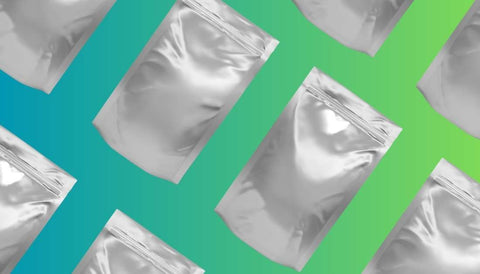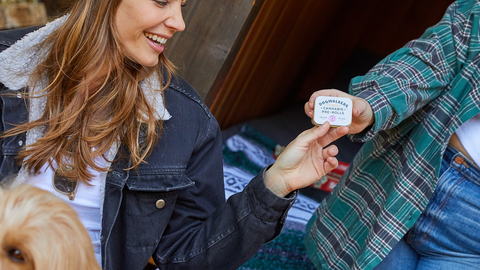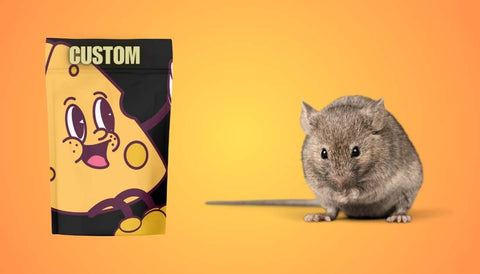When it comes to food storage and preservation, you might consider Mylar bags as an option due to their ability to keep contents safe from the elements, such as moisture, light, and pests. A common question you may have is whether Mylar bags, widely known for their use in long-term food storage, are healthy and safe to use. It's important to understand that Mylar is essentially a clear, strong polyester film made from stretched polyethylene terephthalate (PET) and is coated with a thin layer of aluminum. These layers contribute to the durability and protective qualities of the bags.
The healthiness of using Mylar bags is typically assessed by their effectiveness at keeping food safe from environmental factors and potential contaminants. They are favored in various storage situations due to their barrier properties, which help in preserving the quality and extending the shelf life of foods by preventing oxidation and the growth of bacteria. When used properly, sealing food in Mylar bags with oxygen absorbers can significantly reduce the risk of bacterial growth and maintain the nutritional value of the stored items.
You'll find Mylar bags used not only for emergency food supplies but also for everyday items like coffee, snacks, and pharmaceutical products, underscoring their versatility in keeping products fresh. The Food and Drug Administration (FDA) has approved certain types of Mylar bags for direct food contact, which means that under the proper conditions, they can be safe for storing your foodstuffs. However, it is always critical to ensure that any food storage method you choose, including Mylar bags, is used in accordance with the manufacturer's guidelines to maintain the safety and healthfulness of your consumables.
Health and Safety of Mylar Bags
Mylar bags, made from polyethylene terephthalate (PET), are popular for their durability and protective qualities in food storage. These bags are considered safe for storing a variety of dry goods such as grains, legumes, and dehydrated foods.
Safety Features:
- Non-toxic: Mylar bags are free from dioxins and BPA, reducing the health risks often associated with certain plastics.
- Inert and Stable: The PET material does not react with the food stored within, thus maintaining food quality and safety.
- Airtight Sealing: This prevents the ingress of moisture or air, both of which can lead to food spoilage.
When using these bags for food preservation, follow these guidelines to ensure safety:
- Inspect for Damage: Check for tears or holes that might compromise the bag's integrity.
- Proper Sealing: Utilize a heat sealer to securely seal the bags after filling them with food.
- Use Oxygen Absorbers: These help maintain food freshness and prevent the growth of aerobic pathogens.
In summary, when you properly handle and use Mylar bags for storing dry goods, you can trust their ability to maintain the freshness and quality of your food items without introducing any health risks.
Mylar Bags and Food Storage Optimization
Mylar bags are a strong ally in the realm of food preservation, providing a barrier against common storage woes such as moisture and air contamination. Their effectiveness hinges on their material composition and the proper use of complementary tools like oxygen absorbers and desiccants.
Effectiveness in Protecting Against Contaminants
Mylar bags, constructed from biaxially-oriented polyethylene terephthalate (BOPET), create an exceptional barrier against contaminants. They prevent infestation of pests and inhibit the growth of mold and bacteria by providing an airtight environment. Furthermore, their impermeability to gases means your stored grains, spices, nuts, and other dry goods remain free from unwanted tastes and smells that can transfer through less robust materials.
- BOPET Material: Ensures a high-quality barrier against contaminants and pests.
- Airtight Seal: Preserves taste and integrity of food items by preventing odor transference.
Controlling Moisture, Oxygen, and Light
The key to prolonging shelf life of items like flour, vegetables, seeds, dried beans, granola, whole grains, herbs, and legumes lies in controlling their exposure to moisture, oxygen, and light. Mylar bags excel in this task, especially when used with oxygen absorbers and desiccants. By absorbing excess oxygen and moisture, these additions further enhance the protective qualities of Mylar bags. Vacuum sealing is an additional measure that can be implemented to ensure an airtight seal and minimize oxygen levels.
- Oxygen Absorbers: Extend shelf life by removing oxygen that can deteriorate food quality.
- Desiccants: Control moisture to prevent the spoilage of vulnerable foods like dried fruits and vegetables.
- Light Exposure: Mylar's opaque material shields contents from harmful light that can degrade nutritional value.
Practical Considerations for Using Mylar Bags
When choosing Mylar bags for storage, consider their types, sealing methods, and durability to ensure your items remain well-preserved and uncontaminated.
Types and Sizes of Bags
Mylar bags come in various thicknesses typically ranging from 3.5 to 7.5 mils. Thicker bags offer more protection against punctures and potential rodent damage. The sizes of Mylar bags are equally diverse, with options ranging from pint-sized bags for small quantities to larger 5-gallon bags that suit bulk food storage. The right size for you depends on the quantity of the contents you plan to store.
- Pint, Quart, Gallon, and 5-Gallon Sizes: Choose based on storage needs.
- Thickness: 3.5 mils (flexible), 5 mils (durable), 7.5 mils (puncture-resistant).
Sealing Techniques and Tools
To seal your Mylar bags effectively, ensuring long-term food storage, you'll need proper tools. A flat iron can seal smaller bags, but an impulse sealer or a heat sealer is optimal for a more reliable seal. Follow these steps:
- Fill your bag leaving ample space at the top.
- Place an oxygen absorber inside if needed.
- Use the sealer to apply even heat across the bag's opening, which melts the Mylar to create an airtight seal.
- Tools: Heat sealer (professional), Impulse sealer (quick), Hair straightener (budget-friendly).
- Seal Quality: Ensure even, consistent heat application.
Reusable Options and Longevity
While many Mylar bags are intended for single-use, especially in long-term food storage, some bags come with zip seals making them reusable. When sealed correctly and kept in suitable conditions, Mylar bags' longevity can be several years as they are rodent-proof and offer excellent protection from light and moisture.
- Reusable Features: Zip seals (for easy resealing).
- Durability: Properly sealed Mylar bags are long-lasting storage solutions.
To summarize, your choice of Mylar bags should align with the type of items and the length of time you intend to store them. Proper sealing is crucial for preserving the longevity and safety of your items. Consider the possible need for a reusable option when selecting the right Mylar bags for your needs.
Considerations Beyond Food Storage
When considering Mylar bags for your storage needs, it's important to recognize their versatility beyond just food items. As a prepper or someone interested in emergency preparedness, you might explore how these strong, barrier bags can protect a variety of goods from oxygen, gas, bacteria, rodents, and insects.
- Clothing & Textiles: Store seasonal garments or emergency clothing to keep them dry and free from microorganisms and pests. Mylar's tensile strength ensures your clothing remains intact and preserved.
- Medical Supplies: Important for any emergency kit, Mylar bags can protect your medical supplies, keeping them sterile and extending their shelf life.
- Important Documents: Safeguard critical paperwork like house deeds and legal documents against humidity and pests.
For a robust pantry:
- Dry Goods: Use Mylar bags for bulk foods such as rolled oats, sugar, salt, and white rice, which benefit from reduced oxidation.
- Dehydrated Foods: Dehydrated vegetables, potato flakes, and dehydrated fruits are ideal candidates due to their low fat content and need for moisture control.
- Baking Ingredients: Store white flour, baking soda, baking powder, and honey—ingredients that remain stable and dry, preserving your ability to cook from scratch.
- Beverages: Coffee, tea, and powdered milk retain their flavor and prevent clumping when stored in Mylar.
Pair Mylar bags with:
- Food-Grade Plastic: For added security, place your Mylar bags inside plastic buckets for a robust seal against external factors.
- Mason Jars: For smaller quantities or emergency food storage, combine Mason jars with Mylar bags as an effective method to store items like nuts and cereal.
Remember, Mylar bags are just one part of a comprehensive storage strategy. For items like meats or any perishable with high fat content, alternative preservation methods such as freezing or canning are more appropriate due to fat's susceptibility to rancidity even in low-oxygen environments.



